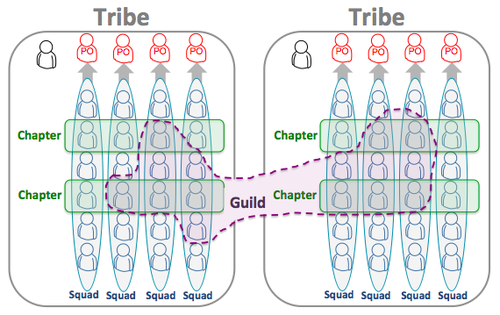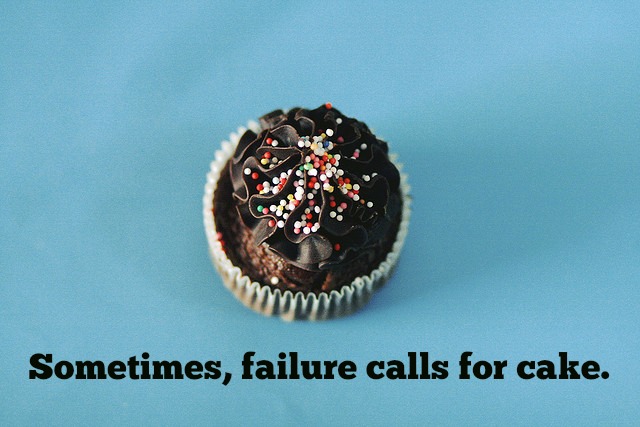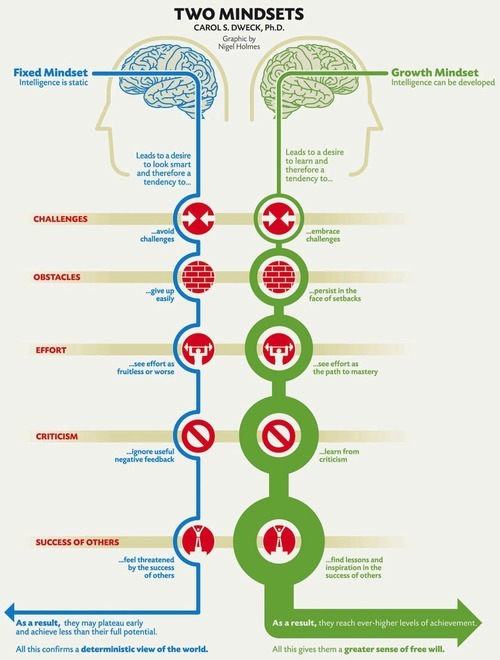Nobody enjoys failing. It’s never really what you set out to do.
At Spotify, failure is cause for celebration, because it’s seen as an opportunity for growth. Jonas Aman, who is part of Spotify’s People Operations team, told us that instead of treating setbacks like speed bumps you rumble over in the course of running a business, they “celebrates thing that don’t work. It’s about the effort, not the result.”
Sometimes, failure calls for cake.
Celebration Requires Attention
In 2011, Spotify faced their first hard deadline for a Facebook integration. Until then, they’d never announced anything in advance; things were done when they shipped. Amidst excitement and nerves, the People Operations (POps) team puzzled over how they could help the technical side meet this deadline and settled on a bonus system.
Jonas explains, “The hypothesis was that if we can do bonuses right, people would want to work harder and we would get more done.” To test their theory, they’d set up two bonus schemes, each for three weeks, starting with Peer Appreciation Tokens (or “PAT”). Everyone got three tokens they could distribute, along with a sentence or two in explanation, and each PAT equalled a monetary bonus.
When the trial period came to a close, Jonas and his team discovered: “most people outright hated it. The evaluation score was so bad that we decided to cancel the second trial.” It was unfair that people doing visible “sexy” work were more likely to get PATs, weird to reward individuals when everyone collaborated closely together, and the system just didn’t square with Spotify’s general principles (“we’ve always been fans of Dan Pink, who strongly discourages extrinsic motivation”).
At many companies, the trial might have been glossed over, a sheepish memory — but for Spotify, it was cause for outright celebration. “We bought a bunch of cakes, invited everyone who had been in the experiment, and celebrated our ‘failure,’” Jonas recounts. “Now we had actual results instead of just speculation! There were some really interesting discussions during this celebration, and most people liked that we weren’t trying to sweep the results under the rug.”
Taking a Growth Mindset Company-Wide
How you approach failure can actually determine your path to success, according to groundbreaking research by Carol Dweck. It’s all a matter of whether you have a fixed or growth mindset.
In a fixed mindset, you believe your abilities are relatively defined and static — which means that every task becomes a test to prove yourself. This leads you to overemphasize outcomes and the trappings of success, react with defensiveness toward setbacks, and hang back from opportunities. Everything is win or lose, seen more as a zero-sum game.
In contrast, the growth mindset is based on the belief that your skills can improve, develop, and grow. You approach challenges, setbacks, and achievements with a sense of possibility, which affects how you view your history and then pave the way forward. As Dweck writes: “[M]indsets change what people strive for and what they see as success. How they change the definition, significance, and impact of failure. And they change the deepest meaning of effort.”
Understanding these mindsets can also deeply impact people management, changing how they see success, failure, and the point of their efforts. What’s your organizational mindset towards performance and ability? Do you emphasize ranking and grading when evaluating people or focus on developing their skills?
Spotify’s cultivation of a company culture of constant improvement through support and development, inspired by agile processes and philosophies, illustrates an organizational growth mindset. And in taking a sugary pause to celebrate its failure, Jonas and his team helped communicate to employees that it is okay to fail, that you shouldn’t hide when it happens but learn from it for next time.
Transforming a whole company mindset takes more than a couple cakes and a poster on the wall professing an embrace of failure.
Here’s what else goes into creating Spotify’s growth mindset:
1. Managers Who Are Servant Leaders
At Spotify, managers are servant leaders, focused on your development through coaching, problem-solving, and mentorship. That’s the whole point of your relationship.
See, if you’re on the technical side of things at Spotify, you work in small cross-functional groups — similar to scrum teams — called squads. You also belong to a chapter with people who have similar skills.

Your manager is the “chapter lead” rather than someone within your squad, which enables focus on your development rather than on delivering edicts or paying more attention to product. Chapter leads stay in touch with the work of making while they manage since they’re part of squads themselves.
You get to work and grow in a supportive, collaborative environment rather than getting distracted or disengaged by having to deal with managers working at odds with you.
2. Three-Dimensional Development.
At most companies, the concept of personal professional development involves climbing the ladder — how you get a more senior title, how you move up in the organizational chart. In a growth mindset organization, development is defined with far more breadth and possibility as “a three-dimensional model of how you can grow in the company,” as Matt O’Leary, head of Spotify New York’s People Operations, puts it.
This richer model removes the emphasis off power plays and focuses on broadening your horizons. At Spotify, that involves structured learning opportunities such as attending or leading trainings, courses, workshops or moving within the organization for a new position or perspective. The company’s “add-on” option allows you to work on new skills outside your role, including training on how to mentor, write, and coach. A public speaker add-on, for example, would provide training to prepare you to speak at conferences and give talks.
3. Study the Past.
A key part of continuous improvement — of your people, process, and product — requires a hard look back. At Spotify, consistent with agile practice, retrospectives take place after sprints and big projects to go over what went well, what didn’t, and how to apply these takeaways to the future. Rather than being used to impart blame, retrospectives are a chance to figure out a better way forward.
“Our retrospectives are very focused on finding the answer to the question what can we do better next time?” Jonas explains. “It may sound simple, but we’re very adamant about not trying to find scapegoats. Maybe we haven’t had the right tools for the job, maybe teams have gotten different instructions or priorities, or maybe there is a feedback loop somewhere that is broken. When and if things don’t go as planned, there are systematical reasons to be fixed!”
4. Reinventing the Performance Review.
While performance reviews might take place once a year, they incentivize certain behaviors and show employees what kind of work is actually valued. With the support of HR, the POps team has reinvented Spotify’s performance review in a way that better aligns with its growth mindset and proves its belief in three-dimensional professional development guide.
In this new (currently voluntary) process, salary discussion happens completely separately. The previous review process, which incorporated peer feedback into salary review, “incentivized people to gather as favorable reviews as possible rather than feedback around their biggest areas of potential improvement,” says Jonas.
Now, using an internal tool, you invite anyone — from managers, peers, and direct reports — from whom you’d like to get feedback, and they provide comments on what you’ve done, the results, and what you could do to improve — and you can do this as often as you choose.
The result is “a process that everyone needs to own and drive themselves, and it’s about development and personal growth!”
* * * * *
Failure provides valuable information — but if you dismiss it, gloss over it, or even punish it, you lose that feedback while sending the message that whatever you say about failure, you don’t actually value that effort, risk, and information. “People always have reasons for their actions, and only by providing an environment that truly supports collaboration and communication can we succeed in the long run,” Jonas observes about Spotify.
Management expert Bob Sutton sees a high failure rate as a mark of innovation and resilience, finding that, “[T]he most creative people — and companies — don’t have lower failure rates, they fail faster and cheaper, and perhaps learn more from their setbacks, than their competitors.” A collective growth mindset can develop competitive advantages for a company because you’re always learning and growing.
When we talk about growth, we tend to put it in terms of business — the profits, the scaling, the increase in size, hacking your marketing. It’s time to include the development of the people who work to get the business there.
Liked this post? Subscribe to our free newsletter for more great content on productivity, management, and how to work better!
Photo: zenat_el3ain/Flickr; Mindset graphic used with permission from Nigel Holmes; Spotify structure via Scaling Agile by Henrik Kniberg & Anders Ivarsson


